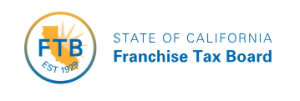Recent Ohio Supreme Court decisions addressing the situsing of receipts under the Commercial Activity Tax (CAT) underscore both the limits of the “continuous delivery theory” and the evidentiary hurdles taxpayers face when seeking refunds for transactions involving Ohio distribution centers. Read together, VVF Intervest, L.L.C. v. Harris, Slip Op. No. 2025-Ohio-5680 (Ohio Dec. 24, 2025), and Jones Apparel Group/Nine West Holdings v. Harris, Slip Op. No. 2026-Ohio-74 (Ohio Jan. 14, 2026), confirm a transaction-focused approach to CAT situsing while highlighting the evidentiary showing required to substantiate refund claims.
Read together, VVF Intervest, L.L.C. v. Harris, Slip Op. No. 2025-Ohio-5680 (Ohio Dec. 24, 2025), and Jones Apparel Group/Nine West Holdings v. Harris, Slip Op. No. 2026-Ohio-74 (Ohio Jan. 14, 2026), confirm a transaction-focused approach to CAT situsing while highlighting the evidentiary showing required to substantiate refund claims.
Articles Posted in States
CalTax 100th Annual Meeting
SALT partners Craig Becker and Robert P. Merten III will be presenting at this year’s CalTax Annual Meeting.
No Contract, No Look-Through: Wisconsin Draws a Line on Software Receipts Sourcing

In a recent decision, the Wisconsin Tax Appeals Commission drew a bright line for sourcing receipts from software for sales factor apportionment purposes: without a contract with the end-user, a company cannot source receipts from software to the end-user’s location. Instead, the receipts must be sourced based on the location of the company’s immediate customer, even if most end-users are elsewhere.
Press Mention: Aruna Chittiappa Analyzes New York Tax Case Poised to Shape SALT Law
A recent Bloomberg Law article suggests the coming year could bring pivotal state and local tax rulings with implications that extend well beyond the individual disputes.
Pending cases in New York, South Carolina and Maryland raise key questions involving foundational state tax issues that SALT practitioners will be watching closely in 2026.
California’s Amended Wealth Tax Initiative Meets Five New Foes
Proponents of the 2026 Billionaire Tax Act amended the initiative, prompting opponents to file five new initiatives aimed at undermining various aspects of the measure. The 2026 Billionaire Tax Act would impose a one-time wealth tax on California residents and trusts with “net worth,” defined in the initiative, exceeding $1 billion, as discussed more detail in our prior article.
New York City Initiates Rulemaking Process for Business Corporation Tax
 New York City’s Department of Finance (DOF) has issued the first tranche of proposed regulations under new Chapter 11A of Title 19 of the Rules of the City of New York (Proposed Rules) to implement its 2015 corporate tax reform—moving straight into formal rulemaking, in contrast with State’s multi-stage drafting process that culminated in December 2023. Although the City’s new Business Corporation Tax (BCT), applicable to corporations and banks that are not federal S corporations, largely mirrors the State’s framework, the Proposed Rules purposefully diverge in several places. The DOF has scheduled a virtual public hearing on the Proposed Rules for 11:00 am ET on November 20, 2025, and all written comments are due in advance of the hearing.
New York City’s Department of Finance (DOF) has issued the first tranche of proposed regulations under new Chapter 11A of Title 19 of the Rules of the City of New York (Proposed Rules) to implement its 2015 corporate tax reform—moving straight into formal rulemaking, in contrast with State’s multi-stage drafting process that culminated in December 2023. Although the City’s new Business Corporation Tax (BCT), applicable to corporations and banks that are not federal S corporations, largely mirrors the State’s framework, the Proposed Rules purposefully diverge in several places. The DOF has scheduled a virtual public hearing on the Proposed Rules for 11:00 am ET on November 20, 2025, and all written comments are due in advance of the hearing.
Billion-Dollar Question: California Initiative Targets the Ultra-Wealthy with One-Time Tax
 Proponents have filed a California ballot initiative proposing a one-time wealth tax on individuals with more than $1 billion in net worth. The “2026 Billionaire Tax Act” would impose, for tax year 2026, a 5% tax on “all forms of personal property and wealth, whether tangible or intangible” exceeding $1.1 billion, with a slightly lower rate on amounts between $1-$1.1 billion. California residents, part-year residents, and certain trusts would be subject to the tax. The initiative would also impose penalties ranging from 20-40% for understatements of the tax.
Proponents have filed a California ballot initiative proposing a one-time wealth tax on individuals with more than $1 billion in net worth. The “2026 Billionaire Tax Act” would impose, for tax year 2026, a 5% tax on “all forms of personal property and wealth, whether tangible or intangible” exceeding $1.1 billion, with a slightly lower rate on amounts between $1-$1.1 billion. California residents, part-year residents, and certain trusts would be subject to the tax. The initiative would also impose penalties ranging from 20-40% for understatements of the tax.
Sourced and Settled: California FTB Finalizes its Long-Awaited Market-Sourcing Regulation, Applicable to Tax Year 2026 and Beyond
After nearly a decade in development, the California Franchise Tax Board (FTB) has finalized its amended market-based sourcing regulation under Regulation Section 25136-2, which governs the sourcing of receipts from services and intangible property.
The regulation was approved by the Office of Administrative Law and filed with the Secretary of State on August 27, 2025. The revised rules will apply to tax years beginning on or after January 1, 2026. Among the most significant changes to the regulation are:
California Updates Tax Regulations on Technology Transfer Agreements
In a move to untangle the complexities surrounding sales and use tax in technology transfer arrangements, California’s tax regulator has laid out three major proposals.
SALT attorneys Jeff Vesely and Richard Nielsen dissect these changes—from adding clarification to introducing rebuttable presumptions—that could dial down uncertainty at the crossroads of sales/use tax and tech licensing agreements.
Welcome back to Pillsbury SALT, Annie!
Pillsbury SALT is excited to welcome back Annie H. Huang to the team!

Annie’s experience focuses on state and local tax matters, including corporate franchise and income, personal income, sales and use, and gross receipts and other local taxes.
Annie brings not only strong legal experience but also a genuine enthusiasm for building relationships and supporting clients through complex challenges.
She joins Pillsbury’s San Francisco office as a partner. Read more here.
 SeeSALT Blog
SeeSALT Blog


